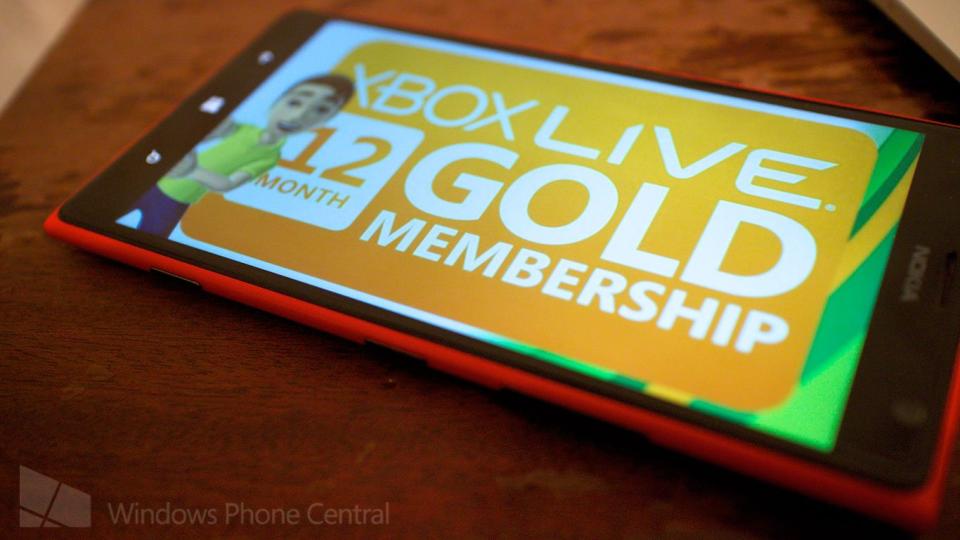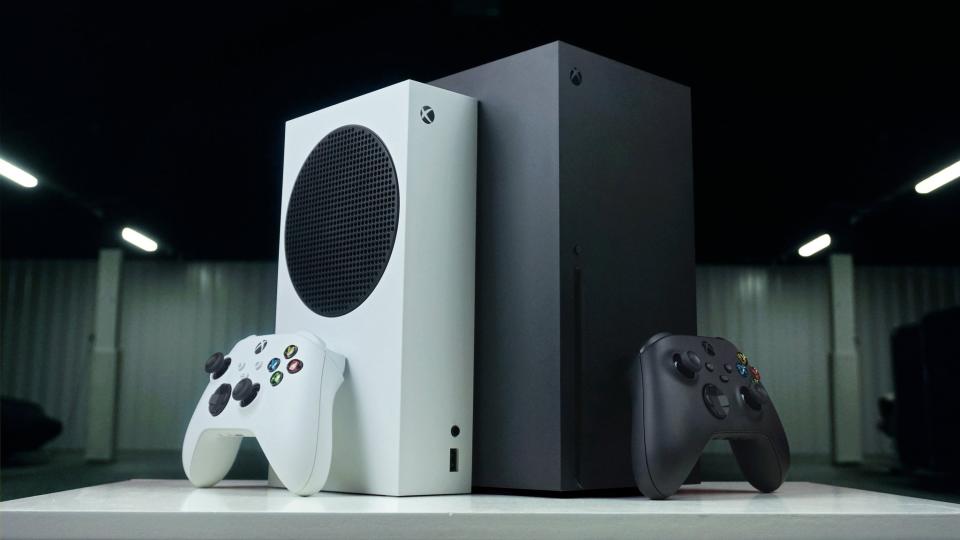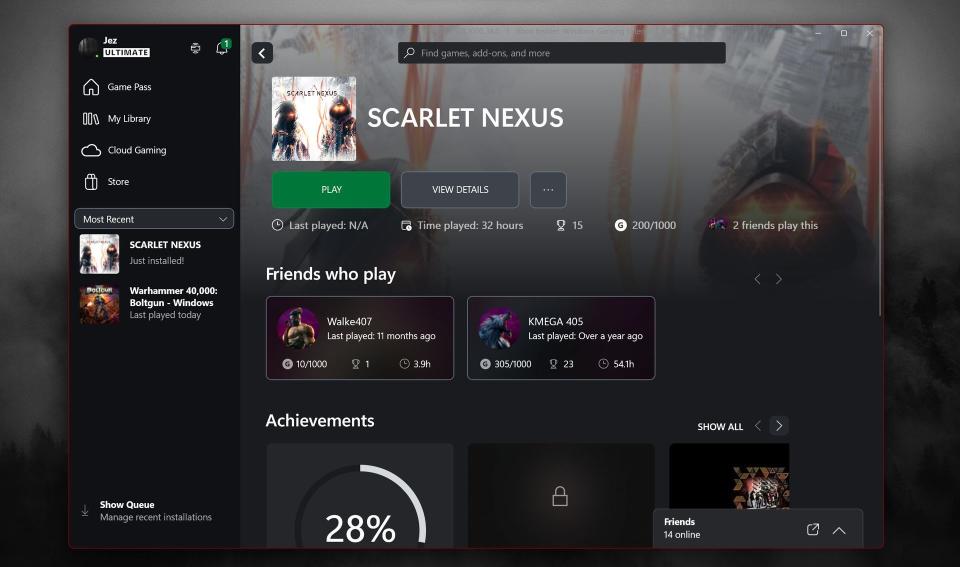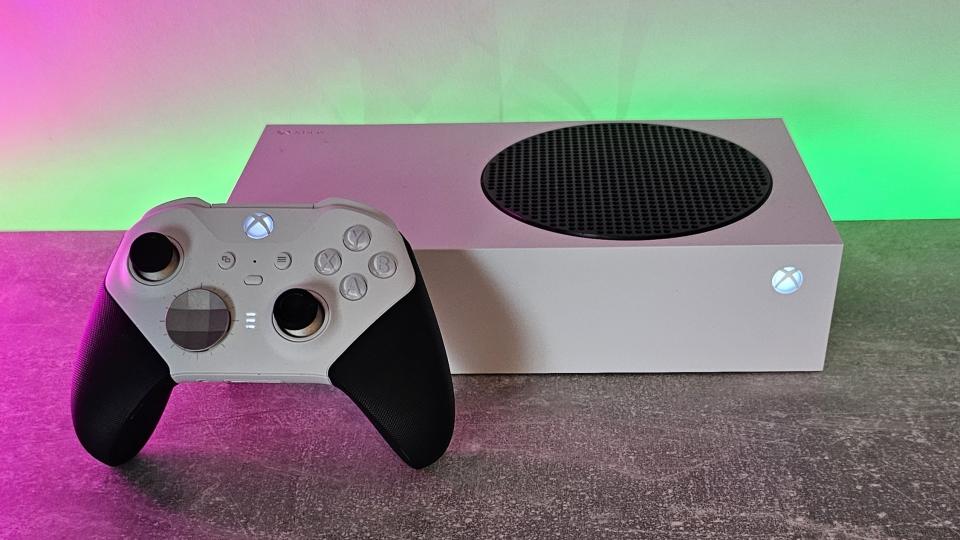If Microsoft really IS bringing Steam, Epic Game Store, etc. to Xbox consoles, it needs to answer these big questions

Microsoft opened Pandora's (X)box earlier this year.
Following rumors and speculation, Microsoft revealed that it will bring Sea of Thieves, Grounded, Pentiment, and Hi-Fi Rush to PlayStation, ending decades of console gaming tradition. Microsoft's increased support of the PlayStation ecosystem will inject even more cash into the Microsoft Gaming operation, which leaped by 40% in revenue last quarter, thanks in part to the acquisition of Activision-Blizzard.
Microsoft has insisted that its initial experiment will only involve those four games, but given how high Grounded and Sea of Thieves have been riding on the PlayStation Store, it's fair to assume even more Xbox games will come to PlayStation in the future. Halo, Forza, Gears of War, Starfield — we have no real idea if anything is off the table, which begs the question — how will Xbox differentiate and drive interest in the next generation without the promise of exclusive games?
Microsoft has discussed internally with its teams that the next Xbox will represent the "biggest technological leap" in a generation so far. Xbox Game Pass also continues to be the best value subscription in all of gaming, which should eventually see games like Call of Duty itself enter the service. But perhaps Microsoft is banking on yet another unique "feature" to remain competitive next gen, too.
Xbox lead Phil Spencer hinted in a recent interview that it wants to see PC storefronts, like Epic Games, Steam, itch.io, and GOG.com, available on Xbox, too. This would be a huge departure from established console doctrine, which suggests that the closed ecosystem subsidizes comparatively cheaper hardware while remaining competitive with mid to high-end gaming PCs (although, obviously, nowhere near the super high-end). Opening up Xbox to competing stores potentially disrupts that model, too, which, by extension, could also disrupt today's Xbox console user.
Microsoft has a lot of questions to answer before it opens yet another Pandora's (X)box, and Xbox's paying customers deserve answers to these questions before any formal announcement is made, in my view.
1. Will we still have to pay to play online?

As I noted in the intro, console hardware is subsidized heavily by the services and software attached to them. Microsoft, Sony, and Nintendo sell consoles at very slim profit margins and make up the difference by selling games, microtransactions, and subscription services on top of it. It's similar to how the printer business models work, where companies like HP sell you the printer relatively cheap and make money back on the far more lucrative closed-ecosystem ink services. You can even buy ink subscriptions these days, and there's even ink DRM.
In any case, one of Microsoft's most profitable "innovations" was the creation of Xbox Live, complete with its monthly subscription. Xbox Live Gold (now Xbox Game Pass Core) gives you access to multiplayer services, exclusive discounts, and a small pool of older games to play at your leisure for $10 per month. Xbox Game Pass Core continues to generate enormous amounts of revenue for the Xbox platform, and removing it overnight would eat a huge chunk out of the profitability of Xbox consoles in general. Even though it feels like a relic of a bygone age, removing it would be difficult — console platforms are already enduring squeezed profit margins owing to the sticky price of silicon, inflation, and other factors.
If Microsoft opened up Xbox to Steam, Epic Game Store, GOG, and so on — would they still require Xbox Live Gold to play online on those storefronts? Steam et al. do not charge a fee to play online on their respective platforms. Nor will they ever. I can't imagine Microsoft will paywall Steam etc. on Xbox for access. But that creates another question — how will Microsoft monetize the Xbox console hardware in this scenario? Will the hardware end up being more expensive to be more profitable? Will that make the prices less competitive with Sony's PlayStation 6 and the Nintendo Switch 2? It could offer some powerful differentiation against those competitors if Microsoft was to drop the Xbox Live Gold multiplayer fee, but I wonder if the economics work long-term in that situation.
It would indeed be an odd universe if I could play Call of Duty, Fallout 76, or Sea of Thieves premium multiplayer experiences for free via Steam on my console, but need to pay a subscription to play it via Xbox. Furthermore, how will these experiences sit side-by-side in the first place?
2. How will you avoid degrading the 'console' experience?

Sticking with the topic of Call of Duty and other multiplayer games on a future Xbox console, how will Microsoft reconcile the multiplayer pools between these separate game versions?
On Steam, games like Call of Duty, Overwatch, et al. often have anti-cheat layers installed on top of them to prevent hackers (with mixed success). They also expect keyboard and mouse inputs and often have aim assist disabled. Some games are more "peripheral aware" than others. However, Microsoft and other platform holders have already shown a near-total inability to detect hacking tools like XIM, which convert keyboard and mouse signals to spoofed controller signals on an Xbox console, giving players an absolutely massive advantage.
If Xbox comes closer to Windows to enable Win32 games like those delivered by Steam, won't that simply ramp up the "hackability" of an Xbox console? It's a question many will ask.
Furthermore, if Xbox is now offering the Steam versions of identical Xbox games, complete with free multiplayer, that could negatively impact matchmaking speeds on Xbox consoles. Already, the setting to disable "cross-play" between console and PC is so obscure on Xbox, and the fact that cross-play is enabled by default has degraded the console pool of competitive multiplayer on Xbox. Players who disable cross-play end up in a much smaller pool of players, making matchmaking completely impossible in some regions and in some games. Cross-play was a great idea for co-op and PvE games, letting players play together, but cross-play in competitive shooters has been a bit of a disaster for game quality and balance. Mouse and keyboard players can turn faster and acquire targets more rapidly with a mouse, and on the flip side, aim assist on consoles will provide an uneven advantage in other situations and in other games, too.
By opening up the floodgates to PC players this way, Xbox is potentially going to force even more Xbox players to matchmake with PC players, which could mean more hackers, fewer console players in the pool, and lead to a downward spiral of general FPS quality on the console that pretty much pioneered competitive console FPS. That is, if Microsoft doesn't have a plan in place. I suspect people would like to know what the plan is.
3. Why would developers still support Xbox Store versions to sit side-by-side with Steam?

Top recommendations
• Best Xbox headsets
• Best Windows laptops
• Best laptops w/ num pads
• Best Xbox storage
• Best sim racing PCs
• Best ROG Ally accessories
With Microsoft putting Steam and Epic Game Store on the Xbox, it will, of course, bring a lot of benefits. Games that have historically skipped Xbox, or simply aren't interested in the console ecosystem, or simply can't factor it into their development costs, will become de facto available on Xbox as a result. This could even extend to Sony's games, which are available on both the Epic Game Store and Steam store via PC and Windows. God of War running on Xbox hardware becomes a little more likely in this situation, but Sony may opt to block the games there rather than deal with the "optics" it could present.
Either way, it also creates a problem. If a developer already has tight costs and thin margins, it may simply become more logical to forego an Xbox version of a game entirely. Microsoft has worked incredibly hard to bring games and franchises like Yakuza, Final Fantasy 14, Persona, and more to the Xbox ecosystem. And now, developers who perhaps were already questioning investment in the "Xbox Store" will do so even more.
If it's a truly open system at that point, Microsoft can't force developers to offer their games on the Xbox Store in exchange for availability on Steam. Furthermore, Steam and Xbox Store versions of games often have different price points, different sales events, different launch dates, and more. Microsoft might be opening a can of worms here. What's to stop a scenario where Xbox players are forced to use Steam simply because developers don't think an Xbox port is worthwhile? What about Xbox customers who don't want to use Steam and simply want the Xbox experience and Xbox library they've always had? Has Microsoft asked any of its existing customers if people actually want the scenario they're proposing? Are the benefits worth the costs? Are there even any real benefits to begin with? Or could this be another case of "you WILL like it," like the bundled Xbox Kinect nobody wanted in 2013?
So many other questions

There could be huge benefits to bringing Steam and other PC stores to the Xbox console ecosystem. Getting games that have console exclusivity on PlayStation potentially as a consequence of Xbox being more "PC-like" is a clear benefit. Dropping the Xbox Live Gold paywall for a more Steam Deck-like offering could also offer huge differentiation against PlayStation as well. But there are so many unanswered questions.
I doubt players will be booting into a Windows desktop environment, installing programs, and dealing with Windows UAC pop-ups, but it does beg the question. What will the user experience look like on this console-PC hybrid? Will PlayStation block their games via Steam and Epic Games Store on Xbox hardware? Will Steam Workshop and other mods be supported? Will I be able to sideload stuff like the Genshin Impact or Riot Games launchers? Will the hardware remain subsidized and affordable, with Microsoft getting less of a cut or maybe even no cut at all, if players flock to Steam instead of Xbox? Is Xbox Game Pass alone good enough to fund all of this? How do you guarantee that the console experience will remain unmaimed when it comes to hackers, cross-play, and different input modalities? Etc. Etc. Etc. Ad Nauseam.
Related: On the strange future of Xbox
I can't help but feel like Xbox could be walking into another "2013 Xbox One reveal situation" here, where they create heaps of confusion by trying to upend familiarity chasing "predictions" and trend data. Ironically, many of Xbox's predictions in 2013 for the future of gaming became true in the end — but people didn't want to hear them nor accept them. People don't like being forced to accept change, and even if all console competitors are gearing up for a more open future like this, being unclear about the plans is potentially even worse than just saying nothing at all.
I hope Microsoft is prepared, and furthermore, I hope Microsoft doesn't take its console audience for granted (again).

